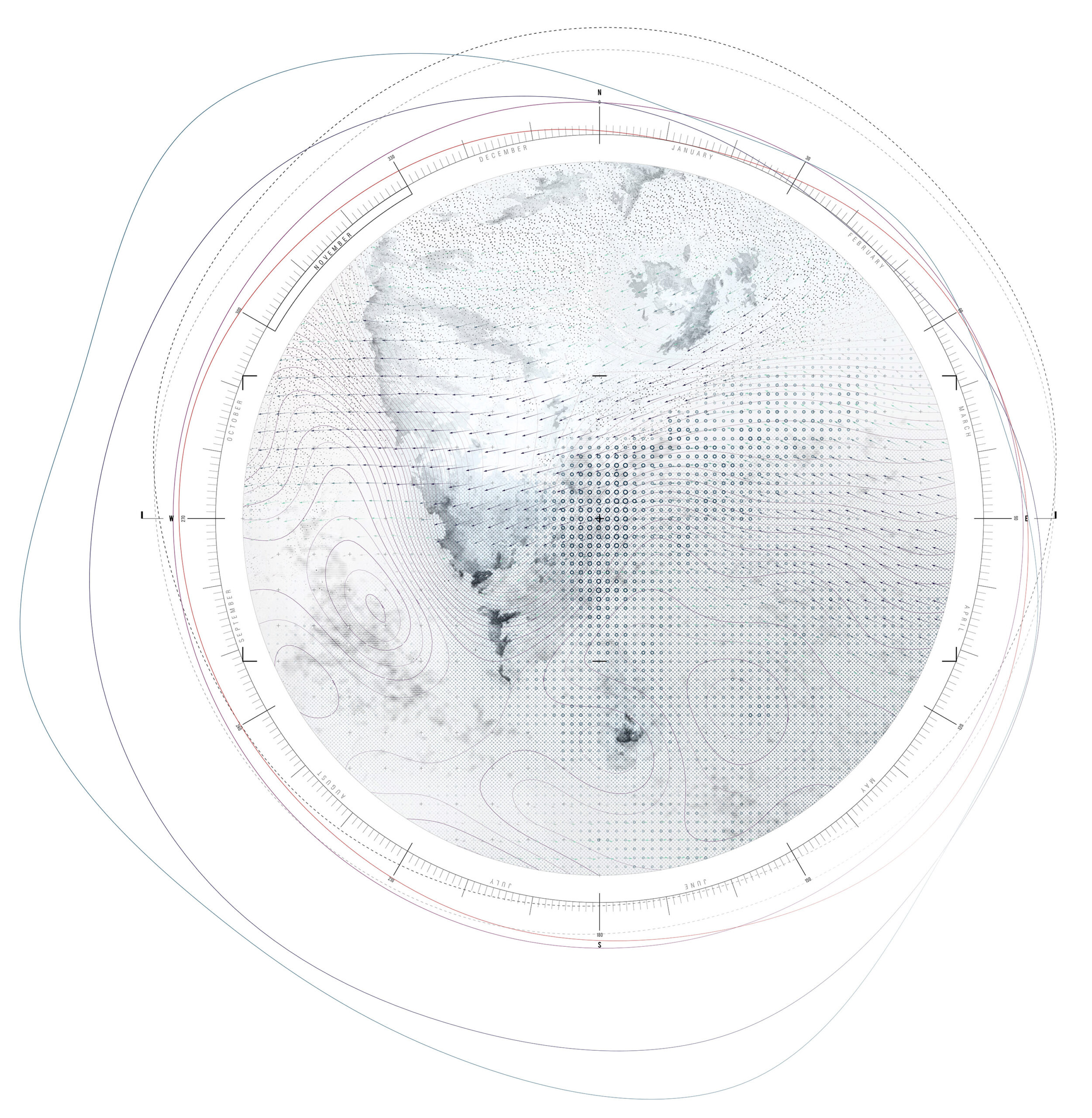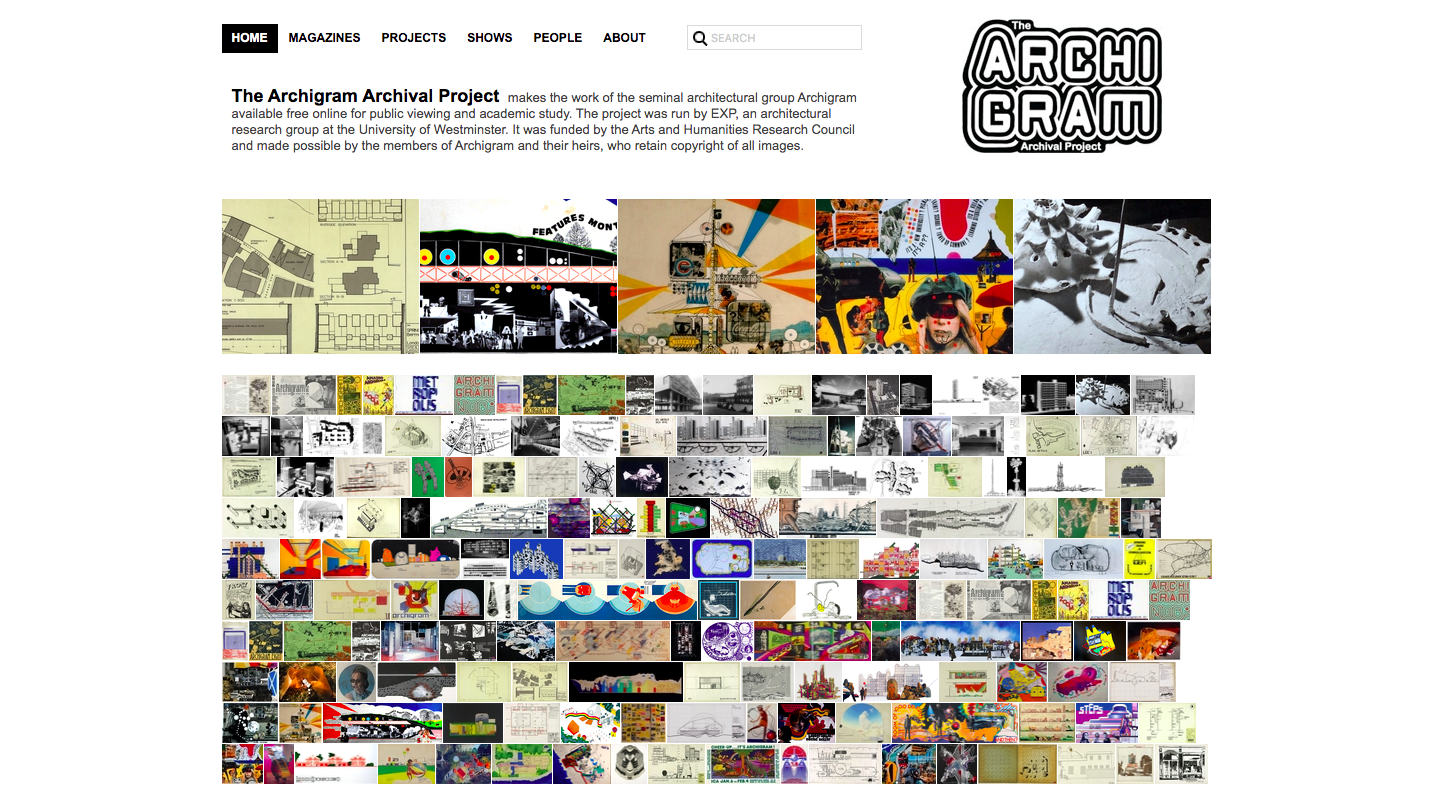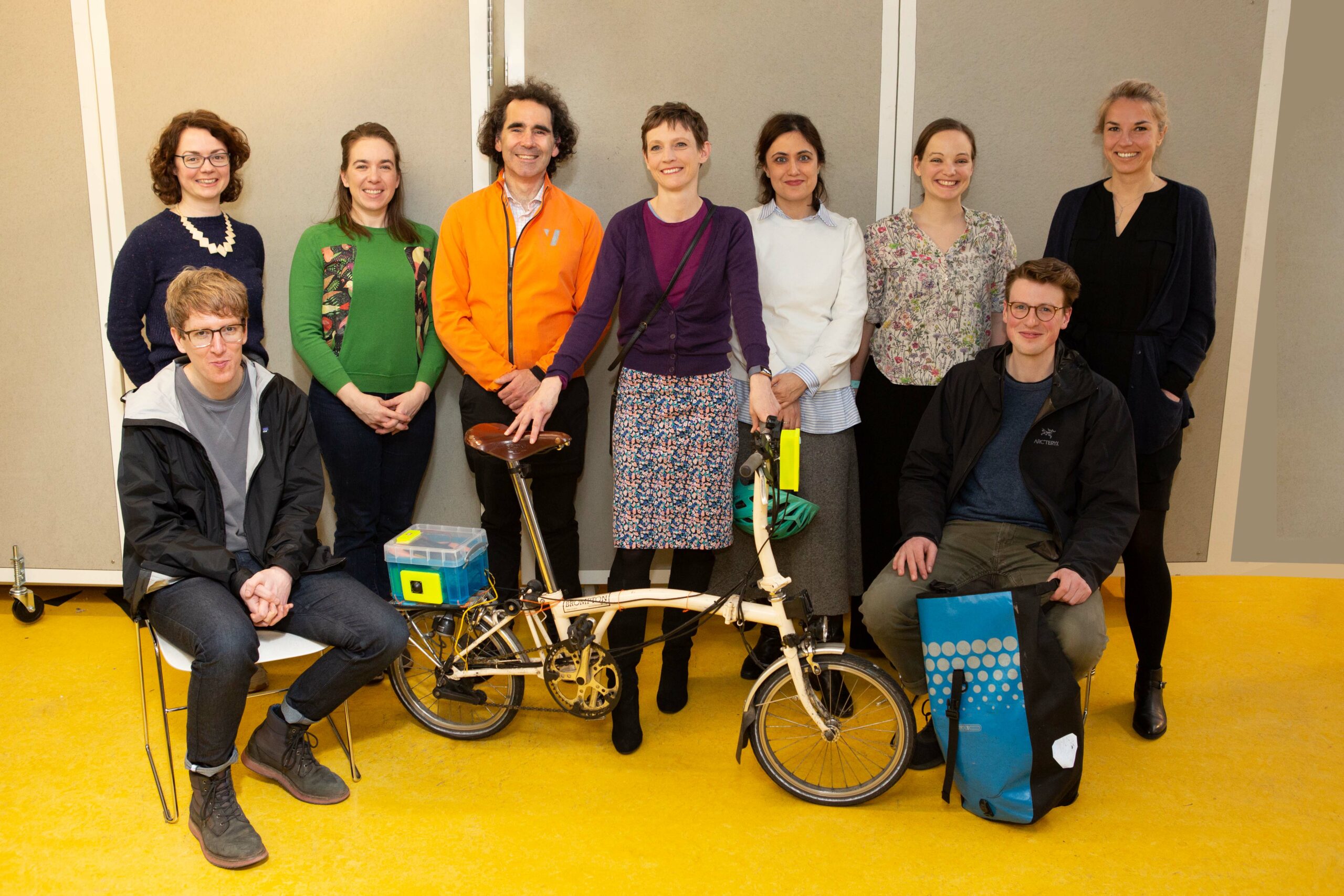RESEARCH RESEARCH
School of Architecture + Cities Research Profile
‘Strategic Design, Sustainable Places and Mobilities’
The unique composition of the School of Architecture and Cities combines the disciplines needed for the design of environmentally and socially sustainable places. Staff are working on the forefront of urban issues related to strategic design, place making and mobilities. We encourage innovation and cross-fertilisation of strategic ideas from architecture, transport, infrastructure development, tourism and urban planning. The School has a strong reputation for research and hosts a series of research centres and groups covering these issues and ideas.
Engagement with practice is a critical component of the School’s research culture. Alongside a passionate group of around 80 research-productive staff, the School hosts high-impact professorial positions and influential visiting fellows from practice. We offer PhD by Practice, as well as practice-based research events including, for example, policy workshops with transport agencies and our Supercrit series. Research activities, while often London- and UK-based, span Europe and the globe, with staff collaborating with a variety of influential partners worldwide.
Staff publish a significant proportion of their work in high-impact journals and books, with additional strengths in practice- and design-based outputs. Due to the applied and practice-oriented nature of the research, the School creates substantial impact in a variety of the policy communities it represents. The types of impact encompass impacts on commerce and the economy (e.g., airport delays, sustainable reconstruction), impacts on public policy, laws and services (e.g., cycling policy, reducing pollution), and impacts on creativity, culture and society (e.g., inclusivity of heritage practice, building listings and archives)
Symposia and workshops are hosted on a regular basis. The School boasts an outstanding portfolio of externally funded research, for example in Air Traffic Management, Sustainable Mobility and Freight, Urban Development, Heritage and Cultural Resources. The regional and international focus includes communities, cities and regions in the UK and Europe, South and South-East Asia, Latin/North America, Africa, and China.
Research Centres and Groups
Air Transport and Air Traffic Management Group
This group specialises in the closely integrated research areas of Air Transport and Air Traffic Management. Regarding these integrated research areas, the former encompasses airline and airport research at the level of route planning, economics of operation and competitive analysis. The latter covers the operational practices and strategic planning and management of air traffic control, addressing economic and environmental performance. The team is working on numerous applied research projects, closely linked with teaching initiatives and industrial research (e.g. coordinating the SESAR KTN and research in Clean Sky 2), plus citizens’ door-to-door mobility.
Architectural History and Theory
This group considers theoretical, historiographical and archive-based approaches to architecture and material culture and examines the way social practice and political structures intersect with the built environment. The group places a strong emphasis on the decolonising of architectural history and heritage, considering themes of gender and sexuality; race and ethnicity and diverse faith practices. In seeking wider critical methods, the group promotes engagement with innovative contemporary practices. As well as publications, members’ research outputs include exhibitions; installations; symposia; conferences and workshops.
Centre for Urban Infrastructure
This centre concentrates on the theoretical, policy, governance, and applied aspects of urban infrastructures. A particular emphasis is to clarify the benefits of sustainable infrastructures (including transport, green and water infrastructures), their governance, and their critical contributions to well-being and resilience in cities, including applying integrated, life-cycle methods.
Centre for the Study of the Production of the Built Environment (ProBE)
ProBE is a joint initiative between the School of Architecture & Cities and the Westminster Business School, focusing on interdisciplinary and international activity relating to the social processes that produce the built environment. It provides PhD supervision and a rich programme of research activities: oral history, film, exhibitions, seminars and conferences. Recent funded projects covered the history of urban squatting and labour in architecture and construction. An important emphasis of current international research is climate change, green and just transitions and renewable technologies in the built environment.
Environment, Technology and Human Comfort Group
The group draws together related strands of research in the School of Architecture & Cities: Environmental and ecological design, and practice driven research into the technological development of architecture. Specific areas of interest include innovative construction technologies, construction history, the teaching of technology, human comfort, building performance and the passive heating, cooling and lighting of buildings. Research outputs include authored and edited books, journal and magazine articles, websites, blogs, conferences, symposia, exhibitions and workshops.
Expanded Territories
This is a research and practice based group working on architecture in an expanded, interdisciplinary field. This field includes the environmental humanities, politics, science and technology studies and contemporary materialist philosophy. The work of the group is framed by the discovery of the anthropocene and around questions of architecture’s material entanglement in planetary ecocide. The group runs a regular reading group to discuss these questions and hosts the ERC funded research project, Monsoon Assemblages.
Experimental Practice (EXP)
This group is part of a growing body of international research studying the innovative, experimental and everyday methods and methodologies through which architects actually do design. It acts as an umbrella organisation for research staff at the School. It has run its own research projects including the AHRC ‘Outstanding Archigram Archival Project’ and the ongoing professional and academic Supercrit research series (2003-date). It hosts a PhD by Practice route, involving the Royal Melbourne Institute of Technology’s acclaimed twice-yearly Practice Research Symposium, and the associated international research community.
Freight and Logistics Group
Research in Freight, Transport and Logistics is carried out by a leading international research team with the majority of the projects involving national and international collaboration. It features work for a large variety of partners from distribution and logistics firms and industry, predominantly concerned with urban distribution and the sustainability of freight transport and logistics operations both in the UK and internationally.
Max Lock Centre
The Max Lock Centre focuses on international sustainable development in all parts of the world, including: public policy and professional practice in urban and regional planning, poverty reduction, management and governance in the built environment, community empowerment and building resilience and the creation of sustainable livelihoods at neighbourhood, city and regional levels.
Representation, Fabrication and Computing
In an age in which digital technology has facilitated a wealth of new opportunities for creative practice, it has never been more important to question the role of architectural representation. Cutting across disciplinary boundaries, scholars, teachers and designers explore the nature of drawing and making in their broadest sense, encompassing a range of activities from historical analysis and the science of visual perception, to design-based research and the exploration of innovative new fabrication technologies.
Sustainable Mobility
Sustainable mobility research covers topics including planning for sustainable accessibility and transitions to low carbon mobility, such as walking, cycling, wheeling, e/micromobilities, reducing car use, and active travel. Our approach is interdisciplinary, rooted in social science, and high impact; winning the ESRC Public Policy Impact Prize in 2016. We are known leaders in the field, our projects funded by research and policy funders (DfT, TfL, AHRC, etc.), on topics from injury and near miss risk to active travel uptake. In 2019 the Quintin Hogg Trust awarded us 582,000 over three years for our Active Travel Academy, covering posts and studentships alongside projects and events supporting our research environment.
Sustainable Urbanism/Urban Studies
The Sustainable Urbanism Group focuses on issues of planning, engineering, design, finance, and governance for sustainable towns, cities, and regions. The emphasis is on the integration of infrastructure and urban development through new research and practice that integrates planning, design and policy that yields greater sustainability and resilience.
Tourism and Events Group
The Tourism and Events Research Group aims to enhance understanding of the increasingly important role that tourism and events play in contemporary cities. The Group examines tourism and events from the perspective of the places and spaces that host these activities and as experiences that can be designed. The Group has a strong track record of research in the fields of city tourism, mega-event projects and air transport and emerging interests in music festivals, strategic experience design, and community-led tourism.
List of Staff Research Projects 2019-2021
Global Challenges Research Fund
- Rachel Aldred, ‘Micromobile Megacities’
- Paolo Cascone, ‘African Off-Grid Housing’
- Claudia Dolezal, ‘Urban Development Global South’
- Tumpa Fellows, ‘Improvised architectural responses’
- Johan Woltjer, ‘Urban and water inequalities Indonesia’
Research Community ‘Sustainable Cities and Urban Environments’ -Interdisciplinary Projects
- Ipshita Basu, Ripin Kalra, Federica Mazzara, ‘Urban Mobility and the Margins’
- Giulio Verdini, Terry Lamb, Nick Beech et al, ‘De-colonising urban and architectural curricula to enable effective climate actions’
- Krystallia Kamvasinou, Rachel Aldred, Nina Smyth, ‘Reuse of urban transport infrastructures as green space for people’s wellbeing’
- Enrica Papa, Pieter Verdegem, ‘Digital Innovation for Sustainable Urban Mobility’
- Christina Georgiadou, Paolo Cascone, ‘Grassroots approaches for incremental upgrading of informal settlements in African cities’
- Andrew Smith, Guy Osborn, Goran Vodicka, ‘Programming public space: festivity / diversity / inclusivity’
- Anne Graham, ‘Ageing Air Passengers: Supporting Inclusion within the Air Transport Door-to-Door Journey’
- Johannes Novy, Ilaria Pappalelore, Adam Eldridge, ‘Sustainable Metropolitan Tourism Network’
- Lindsay Bremner, Neal White, ‘Monsoon Assemblages Exhibition’
- Rhoudaina Alkhani, Tony Lloyd Jones, ‘Syria. Building Livability’
Quintin Hogg Trust
- Rachel Aldred, ‘The Active Travel Academy’
Research Development Fund
- Mengqiu Cao, ‘Sustainable Travel and Well-being in Asian Cities’
- Alessandro Ayuso, ‘Body Agents’
- Claudia Dolezal, ‘Tourism, SDGs and Development in the Global South’
Research Council Funding
- Maja Piecyk, Freight and Logistics Group, Engineering and Physical Sciences Research Council, ‘Centre for Sustainable Road Freight’
- Allan Woodburn, Freight and Logistics Group, Engineering and Physical Sciences Research Council, ‘Global Logistics Environmental Assessment Model’
- Lindsay Bremner, European Research Council (ERC), ‘MONASS: Monsoon Assemblages’
Government and Charities Funding
- Nick Beech, Paul Mellon Centre, ‘From Progress to Possibility: The urban imagination of the British New Left, 1956-1964’
- Davide Deriu, British Academy, ‘Architecture and Vertigo: States of Suspension in the Contemporary City’
- Andrew Smith, Humanities in the European Research Area, ‘FESTSPACE: Festivals, events and inclusive urban public spaces in Europe’
- Rachel Aldred, Department for Transport, ‘Risk Posed to Other Road Users: a new risk metric’
- Rachel Aldred, Road Safety Trust, ‘Reducing Cycling Injuries while Cycling Grows’.
European Commission
- Andrew Cook, Air Traffic Management Team, ‘MODUS’, ‘NOSTROMO’, ‘BEACON’, ‘CAMERA: Coordination and support Action for Mobility in Europe’, ‘Market forces trade-offs impacting European ATM performance’, ‘ENGAGE: Knowledge Transfer Network’, ‘ADAPT – Advanced prediction models for flexible trajectory-based operations’, ‘DOMINO: Novel tools to evaluate ATM systems coupling under future deployment scenarios’
Featured Articles
- Dr Rachel Aldred for The Guardian about cycling lanes across the world
- Westminster academics use their expert skills to 3D print face shields to protect NHS workers during coronavirus pandemic
- Professor Johan Woltjer receives Honorary Professorship from the Institute of Technology Bandung
- Dr Julian Allen for The Engineer about the challenges of online shopping for logistics providers
- Dr Enrica Papa for The Conversation on whether free public transport impacts car usage
- Professor Michael Neuman and Dr Mireille Tchapi for The Conversation on how grassroots projects make urban sustainability a way of life
- Julian Allen for The Guardian on the environmental impact of online shopping
- Susannah Hagan for BBC Radio London about her book on the history of London’s public spaces
- Professor Kester Rattenbury and Tumpa Fellows shortlisted for RIBA President’s Awards for Research
Featured images: Monsoon 2015 by MONASS (Expanded Territories), The Archigram Archival Project by Kester Rattenbury (Experimental Practice) and Active Travel Academy team (Sustainable Mobility)












